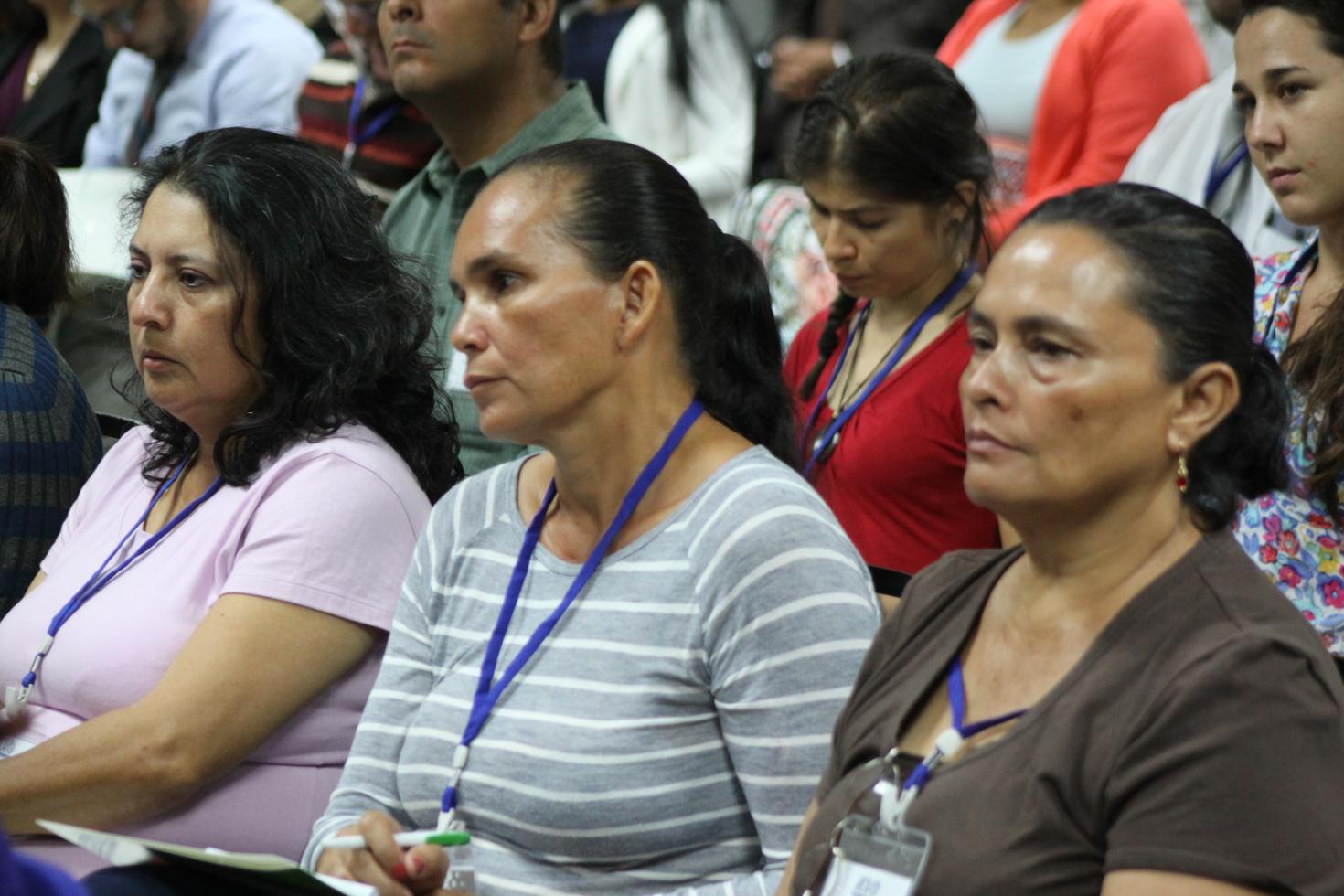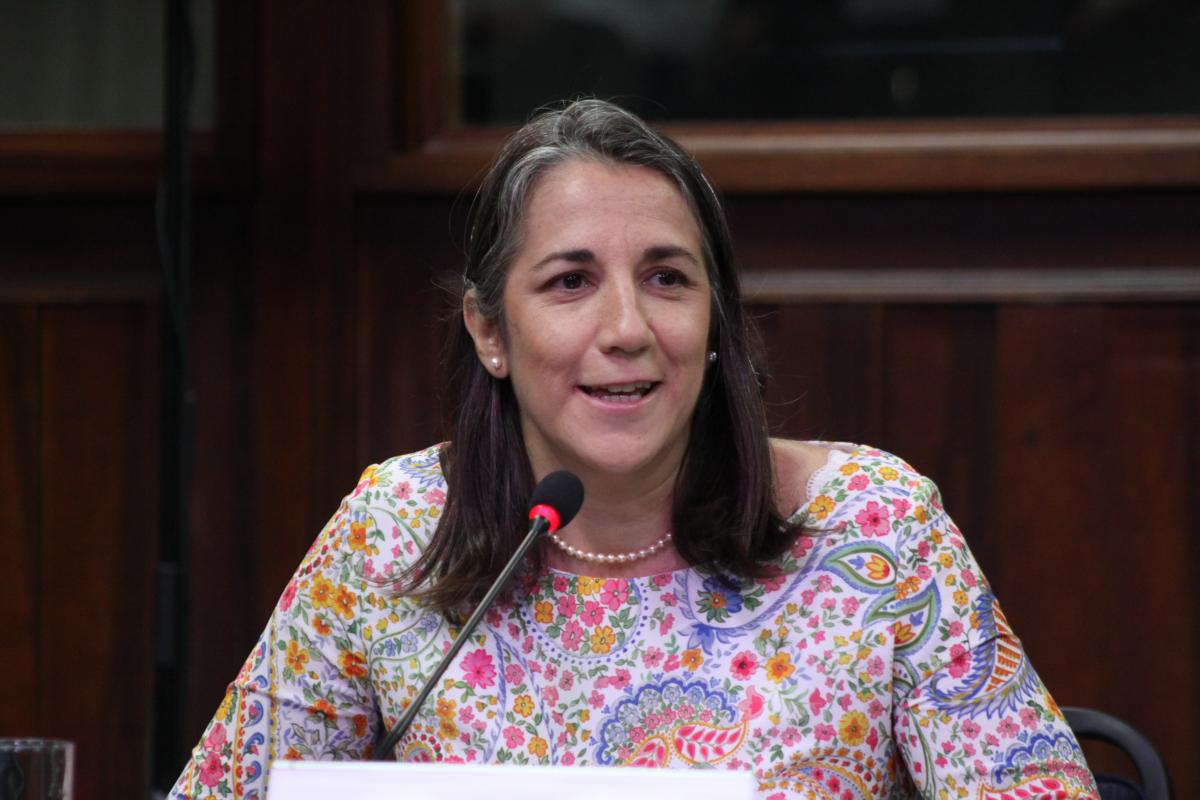The First Lady of Costa Rica, specialists and women producers call for gender mainstreaming in public agricultural policies.

San José, 9 November 2016. (IICA). If women had equal access to productive inputs, such as improved seeds and fertilizers, production in their fields would increase by 20% to 30%.
This information, shared by the Director General of the Inter-American Institute for Cooperation on Agriculture (IICA), Víctor M. Villalobos, has two other major implications: equal access would also increase total agricultural production by up to 4% in developing countries, and would reduce the number of hungry people in the world by 100 to 150 million people.
This data, shared during the International Seminar on Family Agriculture, demonstrates the fundamental role that women play in agriculture. The event, which was organized with support from IICA, included the participation of the First Lady of the Republic of Costa Rica, Mercedes Peñas Domingo.
“Agricultural development involves a number of factors; as a result, it is important to have a broad and multisectoral vision. We cannot keep working with a centralist vision in which all resources concentrate on the central government; women must participate in their own development as well as in the decision-making processes that concern them,” stated the First Lady.
The seminar provided participants with an opportunity to discuss differentiated and institutional policies on the development of this economic activity, as well as contributions to processes that are currently underway, such as plans coordinated by multilateral agencies.
The event was organized by the Costa Rican government, IICA, the International Fund for Agricultural Development (IFAD) and the World Rural Forum (WRF), with support from the Tropical Agricultural Research and Higher Education Center (CATIE), the Agricultural Research Centre for International Development (CIRAD) and the Specialized Meeting on Family Farming of MERCOSUR (REAF).
The Minister for Women’s Affairs and Executive President of the National Institute for Women (INAMU), Alejandra Mora, and the Deputy Minister of the Ministry of Agriculture and Livestock (MAG) of Costa Rica, Ivannia Quesada, called for transitioning from theory to practice, in order to execute actions that facilitate women’s role as entrepreneurs.

The Director General of WRF, Auxtin Ortiz Etxeberria, and IFAD’s Program Manager for Latin America and the Caribbean, Glayson Ferrari, described women as driving forces of the economy in rural territories.
“Women are not a vulnerable population that we must help−quite the contrary. They form part of the answers and the solution that we are looking for in order to drive rural development,” stated Ferrari.
The contributions made by speakers and participants during the seminar will serve as input for establishing the gender-based approach as a fundamental axis in the creation of differentiated policies for family farming in Latin America and the Caribbean.
“It is important to bring about change in structures, processes and policies, with the aim of increasing opportunities for women,” stated the Director General of IICA, who also invited Peñas to drive a hemispheric technical cooperation agenda in areas related to gender and agriculture.
Later in the week, IICA also hosted an international forum with the participation of renowned academics and specialists from international organizations, as well as a meeting between national and regional family farming committees from Central America, the Dominican Republic and Mexico.
More than just a production method
Family farming is a way of life that respects the environment, protects biodiversity and cultural traditions, and promotes area-based development.
The development of family farming would contribute to increasing food supply and, in turn, reducing the unemployment, poverty and malnutrition indexes of the most vulnerable populations in rural areas.
In LAC, about 16.5 million holdings belong to family farmers, who comprise a population of close to 60 million people. Women manage 17.8% of the total number of holdings.
Rural women are responsible for over half of the world’s food production, and they play a critical role in preserving biodiversity through seed conservation, restoring agro-ecological practices, and guaranteeing sovereignty and food security.
More information: miguel.arvelo@iica.int
Audios (Spanish only)
Director General of IICA (Full speech)
First Lady of Costa Rica (Full speech)











